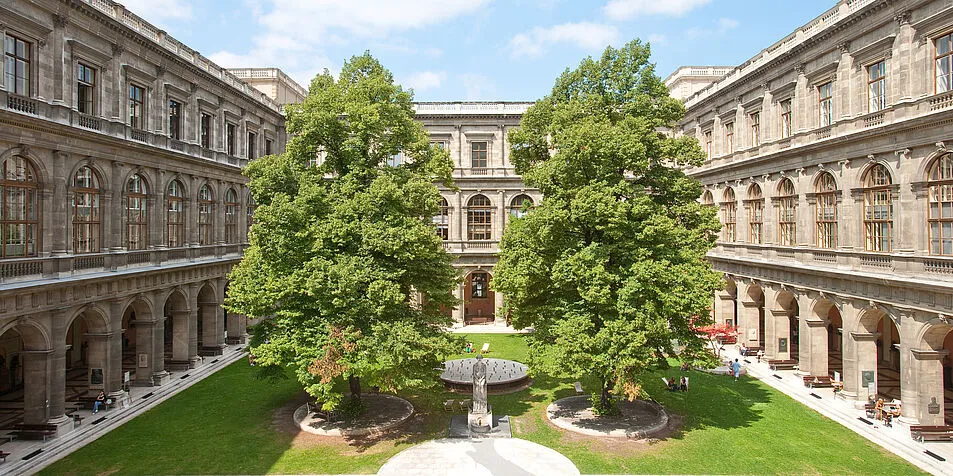
Invited Symposium Expanding the Canon at ECAP11
Conference, Panel Discussion | 11:00 AM - 1:00 PM | Departments of Philosophy in the Central European University, University of Vienna
On August 24, Ruth E. Hagengruber (Paderborn University), Sabrina Ebbersmeyer (University of Copenhagen), and Sophia Connell (Birkbeck University of London) will offer a symposium on “Expanding the Canon”. The Invited Symposium is part of this year’s ECAP11. Please find the ECAP11 program as well as further information here.
In the Symposium “Expanding the Canon,” Ruth E. Hagengruber, Sabrina Ebbersmeyer, and Sophia Connell discuss the following topics:
Depictions of ‘typical’ philosophers are almost entirely of white men, preferably with beards. The idea of a wise, reflective, genius type has almost always been a male-coded ideal and for the most part tracks white supremist and exceptionalist ideology.
Since the 1990s significant progress was made in bringing women philosophers back into our histories of the early modern period (O’Neill 1998, Hutton 2015). Black feminists made a similar case for black female intellectuals, some of whom should count as philosophers; these thinkers have been ignored or excluded from our histories mostly due to genre and circumstance (Hill Collins 1990).
Alongside this positive incorporation of gender and ethnic diversity in the philosophical conversation, has been the steady progression of an all-white male narrative of analytic philosophy, written almost exclusively by men (e.g. Soames 2003, Glock 2008). This story is false and it is easy to prove it to be so
Sophia Connell will introduce the work of a number of very important, influential and intellectually powerful female philosophers from the period 1830-1970, whose ideas form the basis of contemporary analytic philosophy. She will particularly touch on Maria W. Stewart, whose public speeches contain the roots of civic rights arguments still crucial to political philosophy, Dr Sophie Bryant, the first woman to hold a postdoctoral degree in Philosophy in the United Kingdom, who advocated for education for women and minorities through virtue-based discussions, Professor Grace De Laguna, whose speculative brand of philosophical investigation is still influential, and Professor Alice Ambrose Lazerowitz, whose transatlantic ponderings in the early 1930s would help to shape the very way we do philosophy today.
Ruth Hagengruber will reflect on how women have critically examined the concepts of philosophy, discussed or questioned the history of philosophy itself, exposed idolatry, and were active in important areas of religious criticism. She will briefly discuss Du Chatelet and Kant to illustrate the problems that arise from this sexist exclusion and that shape a history of philosophy that is still marked by abridgements, half-truths and plagiarism.
Sabrina Ebbersmeyer will talk about mechanisms of exclusion, text genres, and modes of writing historiography, and will be mostly focussing on the German context during the 19th century.

- DATE
- 24 August 2023
- TIME
- 11:00 AM - 1:00 PM
- COSTS
- none
- PLACE
- University of Vienna
- Vienna, Austria
- Google Map









 share
share tweet
tweet